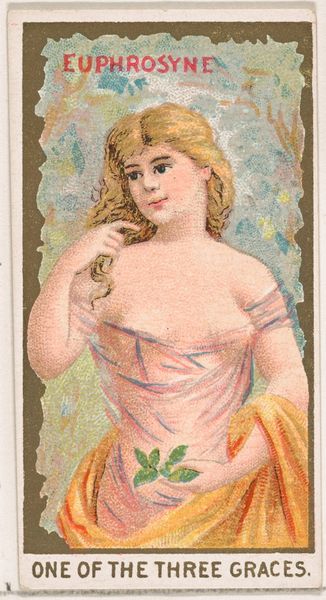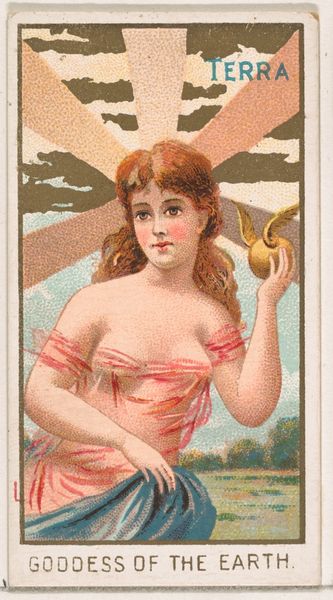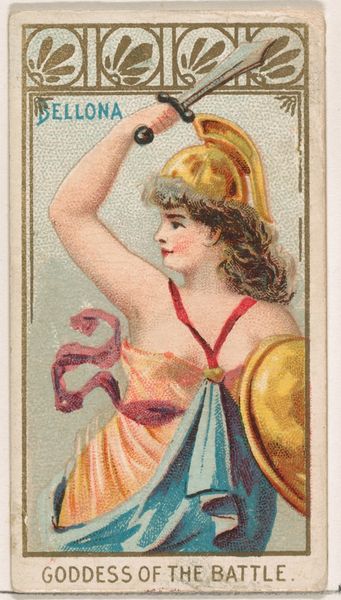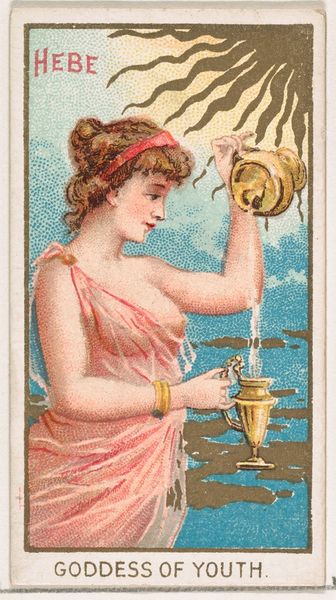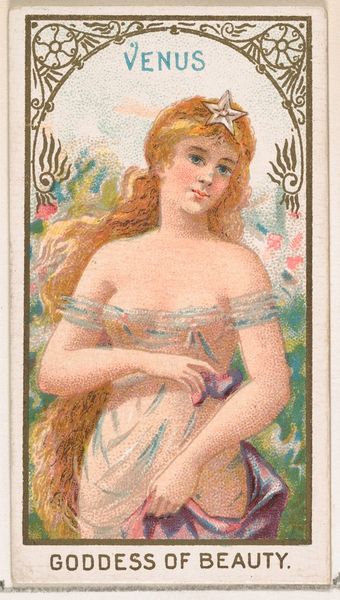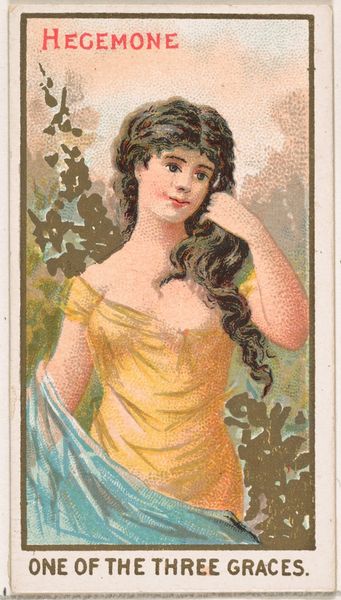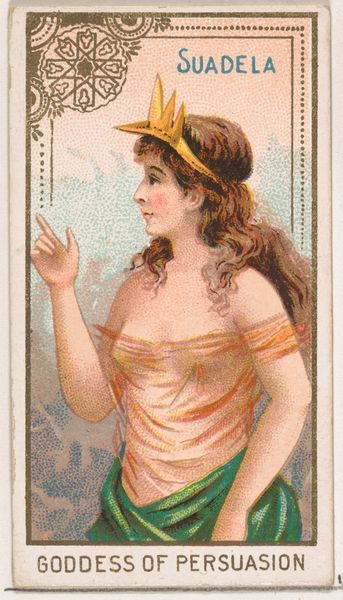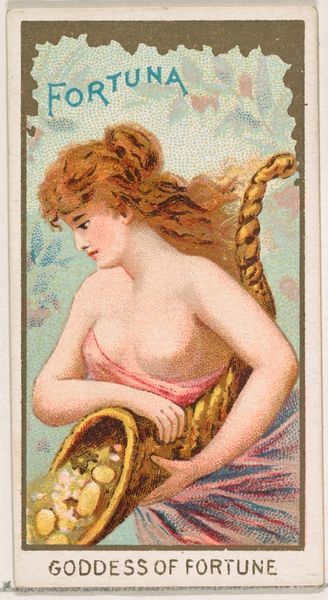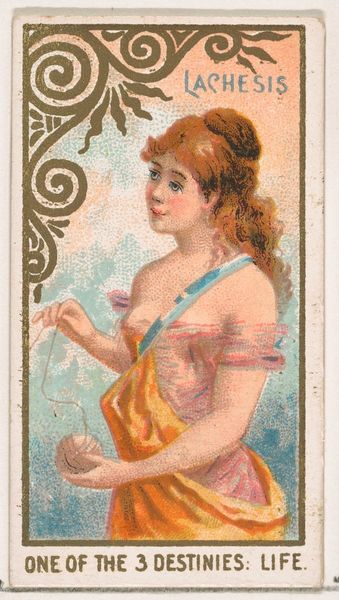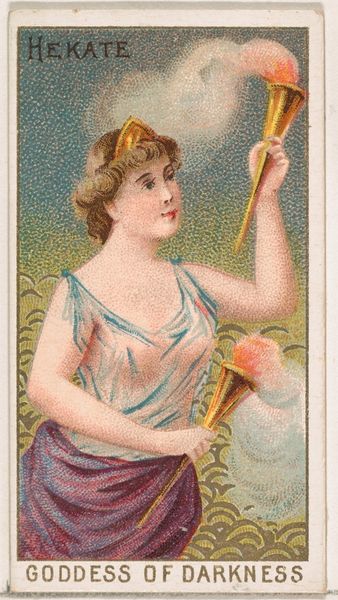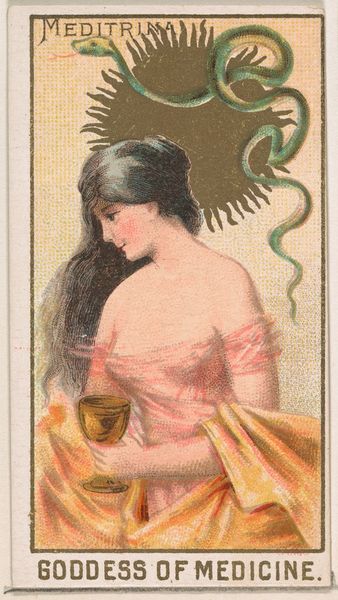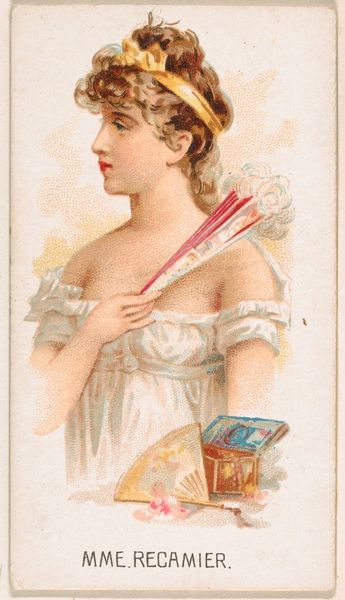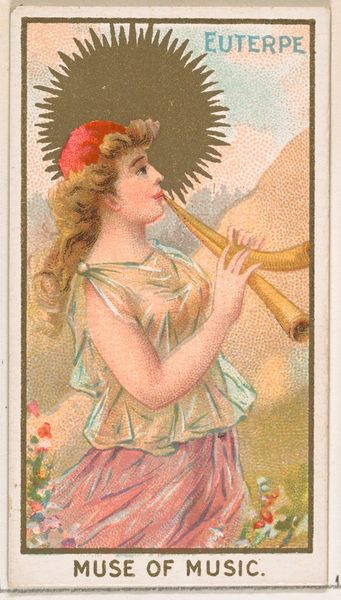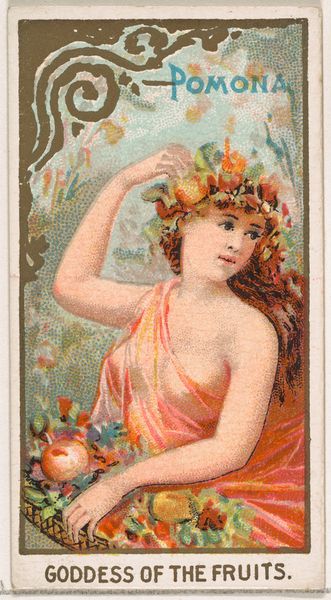
Fatum, Goddess of Fate, from the Goddesses of the Greeks and Romans series (N188) issued by Wm. S. Kimball & Co. 1889
0:00
0:00
drawing, coloured-pencil, print
#
portrait
#
drawing
#
coloured-pencil
# print
#
caricature
#
coloured pencil
#
ancient-mediterranean
#
history-painting
#
portrait art
Dimensions: Sheet: 2 3/4 × 1 1/2 in. (7 × 3.8 cm)
Copyright: Public Domain
This lithograph of Fatum, Goddess of Fate, was printed by Wm. S. Kimball & Co. as part of a series on Greek and Roman goddesses. Here, the goddess carries an urn, a symbol of the lots of life. Its presence is a powerful reminder of mortality, evoking the inevitability of death and the unknown destiny awaiting each individual. Consider how similar vessels appear in ancient Roman funerary reliefs, holding the ashes of the deceased. The urn is a potent symbol of transformation, echoing in medieval alchemy, where the alchemist sought to transmute base metals into gold. The goddess’s urn is the container of one's destiny. Like Pandora’s Box, it embodies hope but also potential misfortune. The image touches the subconscious, reminding us that destiny, whether divinely ordained or self-made, remains one of life's most profound and enduring mysteries. The urn, seemingly immutable, is a vessel with evolving significance, mirroring the ever-changing perceptions of fate across cultures and epochs.
Comments
No comments
Be the first to comment and join the conversation on the ultimate creative platform.
